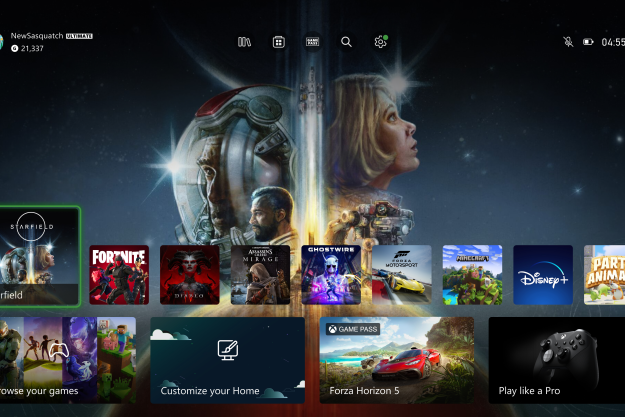 Don Mattrick never managed to cultivate the cult of personality that has made executives like Peter Moore of Electronic Arts, Reggie Fils-Aime of Nintendo of America, and Kazuo Hirai of Sony into some of the more unusual celebrities in the video game industry. In fact, Mattrick’s reputation as the president of Microsoft’s Interactive Entertainment operation, home of the Xbox 360, Kinect, and Xbox Live, has turned downright sour over the past six years. When he announced his departure from Microsoft on Monday, many Xbox fans said good riddance. Maybe now the maligned, unreleased Xbox One console could get back on track.
Don Mattrick never managed to cultivate the cult of personality that has made executives like Peter Moore of Electronic Arts, Reggie Fils-Aime of Nintendo of America, and Kazuo Hirai of Sony into some of the more unusual celebrities in the video game industry. In fact, Mattrick’s reputation as the president of Microsoft’s Interactive Entertainment operation, home of the Xbox 360, Kinect, and Xbox Live, has turned downright sour over the past six years. When he announced his departure from Microsoft on Monday, many Xbox fans said good riddance. Maybe now the maligned, unreleased Xbox One console could get back on track.
It’s strange though; unlike those other executives whose images clogged up message boards with memes around E3, Mattrick actually made video games once upon a time. He was a designer, considered a trailblazer during gaming’s formative years. Now Mattrick will lead Zynga, one of the only gaming companies with bigger PR problems than Microsoft in 2013.
All Zynga has to work with is fading brands like FarmVille and a growing gambling business. Mattrick may have a hard time following his last act.
Long before he incensed hardcore gaming enthusiasts with press conferences about how television and professional sports were the future of Xbox, Mattrick was making games. His career started just shortly before Nintendo made its first original home console, in 1982 when he founded Distinctive Software Inc. The studio was funded with the proceeds of a Commodore 64 game called Evolution, made by the then 17-year-old Mattrick. Appropriately, Evolution was a sort of ancestor to Will Wright’s Spore, a game he would come to be involved with during his future tenure at Electronic Arts. Evolution was an action game where the player started as a single-cell organism and grew into a full human being, turning into smaller animals like fish and apes in between stages.
It wasn’t until 1987 when he made Test Drive at Distinctive Software for PC and Apple II that Mattrick really established himself. The cockpit view common in all of today’s racing simulators, from Gran Turismo 6 to Forza Motorspot 5, has its origin in Mattrick’s 26-year-old driving game. Before Test Drive, driving games placed you outside the car, viewing the action from either an isometric perspective (R.C. Pro Am), behind the vehicle (OutRun), or from directly above (Monaco GP). Not all of Distinctive Software’s games were so forward-thinking. Much of its output after that was PC conversions of old NES games like Metal Gear. In 1991, Distinctive was acquired by the then swiftly growing Electronic Arts, the company Mattrick would stay a part of for the vast majority of his career.
Mattrick continued to make games and spearhead the development of new titles at EA as his studio transformed into EA Canada. Driving games remained a passion. The indefatigable Need For Speed series, inspired by Mattrick’s teenage days breaking the speed limit in and around Vancouver, got its start through his studio, as did other Electronic Arts cash cows like the FIFA Soccer and the NHL series.

Then in 2005, just months after Maxis announced Spore as its great successor to The Sims and Electronic Arts hit its all time peak on the stock market, trading above $65 per share, Mattrick retired to “seek other opportunities.” He was pegged to be the next CEO of the company, but he said at the time that he wasn’t interested in running a publicly traded company. How times change.
When Mattrick re-emerged in 2007, first as a consultant for Microsoft’s growing but still unprofitable Xbox business then as head of the Interactive Entertainment unit shortly thereafter, he was a far more confrontational figure. This is when the world met executive known for incensing fans with statements regarding the Xbox One like, “If you’re backwards compatible, you’re really just backwards.” His first major appearance as the face of Xbox was at E3 2008 when he walked out on stage and announced in clear, simple terms that his job was to trounce Sony.
“I’m willing to declare here today that Xbox 360 will sell more consoles worldwide this generation than PlayStation 3,” he said, and while the two machines are neck and neck in global sales in 2013, Mattrick led Microsoft to victory in the US. The Xbox 360 has been the best-selling console every month in the US for 36 months straight as of this writing. Xbox Live grew to 48 million users under Mattrick’s watch, around 50 percent of which pay for Xbox Live Gold, and he’s helped sell approximately 25 million Kinect motion controllers.
Strange that nearly a decade after leaving Electronic Arts, Mattrick is finally ready to be the head of a publicly traded company…
It’s a habit that’s gotten him in trouble since the May reveal of Microsoft’s Xbox One. Whether in regards to the console’s formerly restrictive digital rights management policies to its horsepower compared to Sony’s PlayStation 4, Mattrick’s statements have riled up the Xbox audience like nothing else. For example, when asked what players with unstable Internet connections should do about the Xbox One’s requirements for an Internet connection, Mattrick responded, “Fortunately we have a product for people who aren’t able to get some form of connectivity. It’s called Xbox 360.” This is the economic perspective of a man whose house alone is worth approximately $28 million.
It seems that Mattrick’s recent attitude towards the Xbox audience may have been a reflection of his own personal career goals. Turns out that he already had one foot out the door when the Xbox One was announced, as he confirmed on Monday that he’s replacing Zynga founder Mark Pincus as CEO of the social gaming company. “I joined Zynga because I believe that Mark’s pioneering vision and mission to connect the world through games is just getting started,” Mattrick said on Monday. “Zynga is a great business that has yet to realize its full potential.” Another unspoken reason he’s joined Zynga, according to sources speaking with Fast Company, is that Microsoft was not planning to give Mattrick a promotion in the broader company.
Strange that nearly a decade after leaving Electronic Arts, Mattrick is finally ready to be the head of a publicly traded company, especially one whose value has crumbled from around $10 billion prior to its IPO to just $2.6 billion today. He’s proven he can turn a business around. Where the Entertainment and Devices segment of Microsoft was struggling before Mattrick joined the team, it’s reported annual growth each year since. Microsoft had a host of popular products in Xbox 360 and series like Halo and Gears of War, though. All Zynga has to work with is fading brands like FarmVille and a growing gambling business. Mattrick may have a hard time following his last act.
Editors' Recommendations
- Xbox Partner Preview March 2024: How to watch and what to expect
- How to watch January 2024’s Xbox Developer_Direct
- Xbox has no plans to make its own handheld system, per leaked documents
- You don’t need an Xbox Series X to play Starfield. Here’s how
- The impending Xbox 360 Store closure makes me wary of Game Pass’ future


